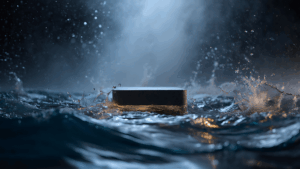With the help of our staff, we gathered some of Castle Water customers’ most common queries and have created a mini-blog series to answer them. In our third ‘Your Questions Answered’ blog, we talk your account and supply.
I’m a landlord with a vacant property – what happens with the water supply?
In England:
Vacant properties are not charged.
A premises is considered to be a Vacant Premises if all of the following criteria are met:
- There is no physical occupation by any person, for any purpose, other than for the sole purpose of providing security services for the premises, for example as a security guard;
- The premises is not open or available to the public or visitors;
- There is no stock left in the premises, except where these items have been abandoned by a former tenant and the premises is not in use;
- There are no movable items left on the premises such as furniture, equipment tools or movable equipment or machinery; and
- Any fixtures and fittings have been abandoned by a former tenant and the premises is not in use.
It is the occupants who are liable for paying charges, not landlords – although we may agree to bill the landlord under certain specific circumstances.
In Scotland:
If you are a landlord of premises with an active supply, you are liable to pay for any fixed water, wastewater, and drainage charges levied against the property, as well as any usage that may be recorded on the meter. This will all be detailed on your invoice. You are also responsible for advising us of any change of tenancies at the property. You may be able to save money on your charges, as an occupant of premises, by entering into a contract for your water and wastewater services and paying your bill by Direct Debit.
I think I have a shared supply
If you are concerned that your business premises is part of a shared supply, you can check it by locating your external stop taps. This is usually at the boundary of your property in the pavement. A single supply will have a stop tap for every premise, however, a shared supply will only have one stop tap for all premises connected to the supply.
If your premises is currently part of a shared supply, you may benefit from a separate connection. A shared supply can sometimes reduce water pressure at your property. An approved plumber can install the new pipework needed to split your shared supply, however, the Wholesaler must approve any new pipework before connection to assure it meets the required standards. Please get in touch with us to discuss this if you think your business could benefit from a single supply.
An account has been set up in my name but it isn’t my supply
If you are concerned that a supply you are not responsible for has been set up as an account in your name, please get in touch with us as soon as possible to discuss this. Your landlord is responsible for notifying the water provider of premises when there is a change of tenancies, so if you have just moved into new premises, this may be what has happened.
I’m receiving letters for someone else at my new business premises
If you have moved into a new business premises then you need to update us, as your water supplier, of your business and contact details. You can get in touch here.
To get a bespoke quote for the provision of water and wastewater services, you can switch water supplier. Alternatively, call our dedicated sales line on 0808 196 2299.
My account is on hold but I am still receiving requests for payment
Accounts are normally only placed on hold for the following reasons:
- Where there is an error with the bill, such as an incorrect meter reading,
- A pending deregistration of the supply,
- A formal payment plan has been agreed upon,
- Or where a payment has been made but not yet allocated.
If you have been advised your account is on hold, and you are still receiving requests for payment, please contact us soon as possible.
I think I have a leak – how can this be checked/fixed?
If your water bills are becoming more expensive, there may be a number of reasons for this. You should consider:
- Seasonal usage
- New appliances using more water than expected
- Faulty appliances
- Higher footfall in your business
- If you’ve recently had a meter replaced or installed
- That your bill covers the period you expected
- Balances brought forward from previous bills
If none of the above applies, and your bill shows you are using more water than usual, this may mean that you have a leak. If this leak is on your premises, you are responsible for finding and repairing it.
If you think you have a leak, you can follow these simple steps:
- Choose a time of day where you can turn off all water appliances, for example overnight when your business is closed.
- Then, if the meter is safe to access, take a meter reading.
- Leave appliances off for at least 30 minutes, then take a meter reading again.
- If the number has not changed, it is unlikely that you have a leak.
- If the number has changed, you may have a leak.
If recent meter readings indicate higher than predicated usage, this may result in a higher bill being generated to accurately reflect usage.
You can get further assistance and guidance on leaks here.
Useful links
Get a quote – Find out if you can save more money on your water and wastewater bill with Castle Water.
Set up Direct Debit – We make it easy to set up a Direct Debit online.
Leak assistance – Water leaks can occur unexpectedly and can be very costly to your business. Use our helpful FAQs to help find out if you have a leak.
Moving premises? If you’re moving into or out of your business premises, provide us with the details and we’ll take care of the rest.
Contact Us – If you still have a query, please do not hesitate to get in touch. Our customer services are available from 8 am – 6 pm, Monday to Friday.



